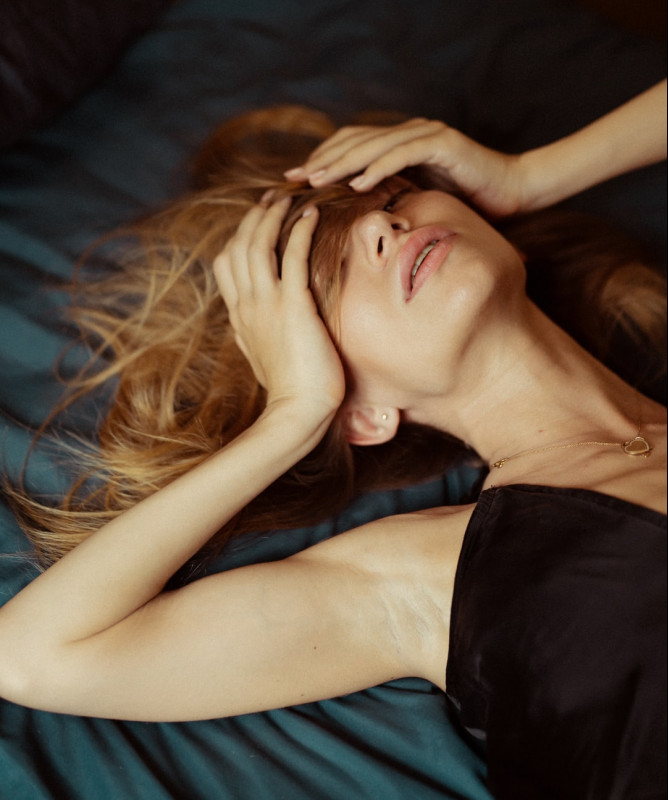 The hot flashes of birth
The hot flashes of birth
Are you shocked and exasperated at the amount of heat and sweating you are experiencing following delivery?.
Are you having repeated flushes occurring from head to toe several times a day as if you are already in menopause?.
Please do not worry too much as these are sometimes a normal occurrence following delivery and like most things postpartum will also pass in time.
Postpartum hot flashes are the classic burning sensation and hotness flashing throughout the body reminiscence of menopause in a woman who has just delivered. It has also been noted to occur in pregnancy but is very well-marked in the postpartum period. It affects the majority of women after delivery with some studies suggesting it may occur in up to 80% of women especially first timers and those choosing to do exclusive breastfeeding.
Causes of hot flashes
The hormonal changes that result following delivery is implicated in hot flushes. As the hormones drastically drop from the high levels of estrogen seen during pregnancy, to the low levels of estrogen observed following delivery, there is associated development of hot flashes and the drenching night sweats that is associated with it.
The low levels of estrogen mimic the levels seen during the menopause and these levels are unable to stimulate ovarian response and the lack of ovulation is a factor in the development of the hot flashes postpartum.
When you are breastfeeding there is an associated low level of estrogen and this in association with high levels of prolactin that is necessary to maintain lactation leads to the suppression of ovarian response with resultant anovulation and development of symptoms resembling menopause of which hot flashes or flushes, vaginal dryness, mood changes and night sweats are all part of.
Your body has also accumulated a lot of fluid in all compartments of the body as a consequence of pregnancy and these needs to be got rid of following delivery so these excess fluid accumulation that is being removed from the system contributes to the sweating that you experience postpartum.
Symptoms
The common symptoms of postpartum hot flashes are the persistent hotness that can occur several times in a day and keeps you wondering whether you have a fever or not. Your body temperature check however is always on the normal range but the hotness persists. This usually starts occurring some days following delivery
There is associated occurrence of sweating that occurs throughout the day but is more common and very worrisome at night as it makes sleeping uncomfortable as you get drenched on your bed while you sleep.
Other symptoms that you may experience with hot flashes and night sweats are symptoms related to the low levels of the hormones especially estrogen like mood swings. It is also associated with sleep disturbances, irritability and impairment in overall physical, social and emotional lifestyle
Risk factors for hot flushes
Some conditions are associated with an increased chance of developing hot flashes postpartum and they include smoking in pregnancy, depression and other affective mood disorders and lower educational status of the woman.
When do hot flashes start
As soon as you deliver and your milk starts coming in, there is a marked low level of the hormone estrogen that triggers the symptoms of hot flashes within the 3rd or 4 th day after delivery. It must also be stressed that most women may differ in their presentation and some may not develop hot flashes so early in the postpartum period, the symptoms occurring later but the symptoms of hot flashes usually peak in about two weeks following delivery depending on the breastfeeding pattern.
How long will it last
Postpartum hot flashes usually resolve with time. The duration of its manifestation is dependent on if the woman is not breastfeeding at all, if she is doing exclusive breastfeeding or is doing supplemental feeding. These scenarios will impact on the hormonal level postpartum and will either assist in shortening or prolonging the duration of the hot flashes
Management
As with most postpartum complaints related to the hormonal swings of the delivery period, postpartum hot flashes will resolve but in the interim we can assist you with measures to ameliorate the symptoms while we await for the hormonal balancing act to kick in and settle the matter
Measures aimed to stop it
Stay hydrated –
All that excess sweating can lead to dehydration so drink extra water to stay hydrated and healthy while it lasts. Take plentiful water early in the mornings especially after a night of sweating as you are also breastfeeding your baby throughout the night.
Readjust your sleep environment –
Wearing light clothing especially of the cotton variety or sleeping nude is encouraged as it will help you deal with the sweating and give you a better night sleep, keep a fan nearby to cool you down or use an air conditioner in the room. Use towels on your pillow to absorb the extra sweat and put a rubber or nylon covering over the mattress to protect it
Watch your diet –
Avoid smoking, alcohol and caffeine as they worsen the hot flashes and indulge in a healthy eating habit with lots of fruits and vegetables incorporated into your diet.
Exercise –
Exercise is helpful in hot flashes, even a brisk walk in the park will go a long way as it also helps in removing the extra water accumulated in pregnancy that is implicated in the development of hot flashes and drenching night sweats.
Breastfeeding and hot flashes
The impact of breastfeeding on hot flashes and night sweats is well-established. Breastfeeding lowers the estrogen levels and the type of feeding you choose to implement for your baby following delivery impacts on your development of hot flashes and its duration.
Exclusive breastfeeding –
Exclusive breastfeeding is associated with the most persistent and prolonged occurrence of hot flashes. Exclusive breastfeeding maintains sustained milk let down and suckling reflexes with marked ovarian suppression and the persistently elevated prolactin level is an bonus to the suppression of ovulation with associated marked hot flashes. It can be sustained for up to 6 months if still exclusively breastfeeding though the symptoms start regressing after the 6 weeks period after peaking at two weeks
No breastfeeding –
A woman who chooses not to breast feed still has early hot flashes as the hormones crash to nadir following delivery but recovery is fast as lack of breastfeeding will allow the hormones to return to normal and ovulation recommences . The hot flashes and night sweats are experienced within the first week of delivery but gradually subside as hormone levels recover.
Supplemental breastfeeding –
When you engage in bottle feeding in addition to breastfeeding, the hormone prolactin is still produced and you will still have hot flashes though the hormones are not completely suppressed, the levels of estrogen is still not enough to initiate a successful ovulation as the suckling reflex persists but as supplemental feeding increases suckling decreases and the hormonal suppression is lost and with it the hot flashes.
What if hot flashes gets prolonged?
if you feel that the symptoms you are having are not subsiding or is getting prolonged unnecessarily, you should consult your doctor to rule out any other disorder that may be responsible.
Natural remedies for hot flashes
Some home made and natural remedies have been promoted as being able to take care of hot flashes. None has been shown to have any proven consistent result on hot flashes. Some herbal remedies like black cohosh, ginseng and kava have been noted to have some effect on the mood and affective disorders of menopausal symptoms with some like kava being associated with liver problems but none has been shown to be effective in tackling hot flashes specifically.
Ride the tide
Sweating is not all that a bad idea as the body uses it to maintain body homeostasis and we all need it to stay alive and a lot of sweating is always expected following delivery with all that water and fluid retention of pregnancy to return the body to balance again and it will eventually subside as body hormones and fluid balance is restored.
Hot flashes is a temporary nuisance on your road to postpartum freedom and health and while you can tolerate it till it subsides in time you can use the above stated measures to ride the tide till the body returns to normal cyclicity.
Dr Mawa
To your postnatal health and freedom
mypostnatalmanagement.com
Please if you have any questions, suggestions or feedback on postpartum hot flushes or your experience you want to share kindly let us know by using the comment box below.


I was wondering how long will the hot flushes last after giving birth? And I want to say thank you for helping me find the answer. I perceive it’s a bit of a moveable feast, unfortunately. On average they can last about seven or eight days, but it has been known for some women to experience hot flushes (or night sweats) for up to six weeks. So, knowing this, we can be supportive of our wives.
When a pregnant woman reaches the last month of pregnancy, she is struggling with many contradictory feelings, including the overwhelming joy of the imminent arrival of her newborn, the intense anxiety and fear that she has because of the birth process and the fear of exposure to the pain that she hears from all those who have undergone childbirth before.
But birth pains always differ from one mother to another, as it depends on the nature of the mother’s body and its ability to withstand the pains, the size and position of the fetus, the strength of the uterine contractions during childbirth and the previous birth experience, if any, so what if you knew that there are mothers who underwent a natural delivery and refused to take any painkillers or an epidural injection During the entire period of childbirth without complaining of pain or inconvenience.
Is this true?
Perfectly true. Some women that elect to undergo a natural birth will elect not to have any sort of pain relief during the process and come out perfectly okay. You should be mindful also that something like epidural anesthesia can actually slightly prolong the duration of labour and some women do not want to hear that and will rather want to get it over with as soon as possible